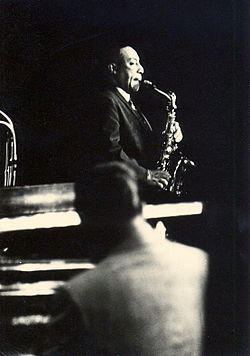
Authenticity is a concept of personality in the fields of psychology, existential psychotherapy, existentialist philosophy, and aesthetics. In existentialism, authenticity is the degree to which a person's actions are congruent with their values and desires, despite external pressures to social conformity. The conscious self comes to terms with the condition of Geworfenheit , of having been thrown into an absurd world (without values and meaning) not of their own making, thereby encountering external forces and influences different from and other than the Self. [2] Authenticity has emerged as a central concept in contemporary models of well-being and the good life, serving as a foundational principle in many leading psychological frameworks. [3] A person’s lack of authenticity is considered bad faith in dealing with other people and with one's self; thus, authenticity is in the instruction of the Oracle of Delphi: “Know thyself.” [4] Concerning authenticity in art, the philosophers Jean Paul Sartre and Theodor Adorno held opposing views and opinions about jazz, a genre of American music; Sartre said that jazz is authentic and Adorno said that jazz is inauthentic. Many musical subcultures require artistic authenticity, lest the community consider an artist to be a poseur for lacking authenticity (creative, musical, or personal); [5] artistic authenticity is integral to many genres of music, including but not limited to genres of rock (such as punk rock and heavy metal), club music (such as house and techno), and hip-hop. [6]
Contents
- Existential perspectives
- Søren Kierkegaard
- Friedrich Nietzsche
- Jean-Paul Sartre
- Erich Fromm
- Authenticity paradox
- Musical subculture
- Criticism
- See also
- References
- Further reading
In the 18th century, Romantic philosophers recommended intuition, emotion, and a connection to Nature as the necessary counterbalances to the intellectualism of the Age of Enlightenment. [7] [ clarification needed ] In the 20th century, Anglo–American preoccupations with authenticity centered on the writings of existentialist philosophers whose native tongue is not English; therefore, the faithful, true, and accurate translation of the term existentialism was much debated, to which end the philosopher Walter Kaufmann assembled a canon of existentialist philosophers. Kaufmann's canon includes the Dane Søren Kierkegaard (1813–1855), the German Martin Heidegger (1889–1976), and the Frenchman Jean-Paul Sartre (1905–1980). For these existentialists, the conscious Self comes to terms with existence (being and living) in an absurd, materialist world featuring external forces, e.g. Geworfenheit (Thrown-ness), and intellectual influences different from and other than the Self.
Personal authenticity is exhibited in how a person acts and changes in response to the external world's influences upon the Self. Among artists, authenticity in art describes a work of art faithful to the artist's values. [8] In the field of psychology, authenticity identifies a person living life in accordance with their true Self and personal values rather than according to the external demands of society, such as social conventions, kinship, and duty. [9]
To identify, describe, and define authenticity, existential philosophers like Kierkegaard, Nietzsche, and Martin Heidegger investigated the existential and ontological significance of the social constructs that compose the norms of society. For a journalist, not blindly accepting social norms contributes to producing intellectually authentic reportage, achieved by the reporter choosing to be true to their professional ethics and personal values. Yet, in the praxis of journalism, the reporter’s authenticity (professional and personal) is continually contradicted by the business requirements of corporate publishing. [10]
